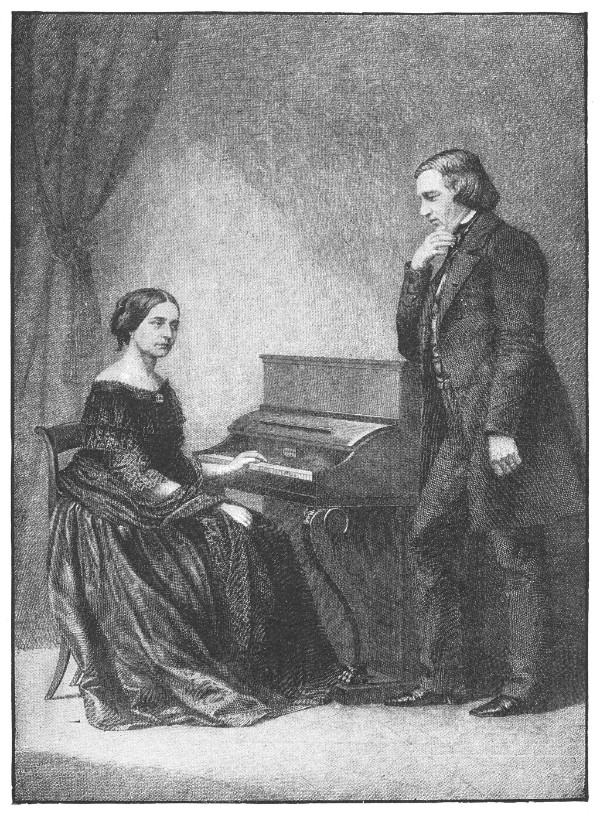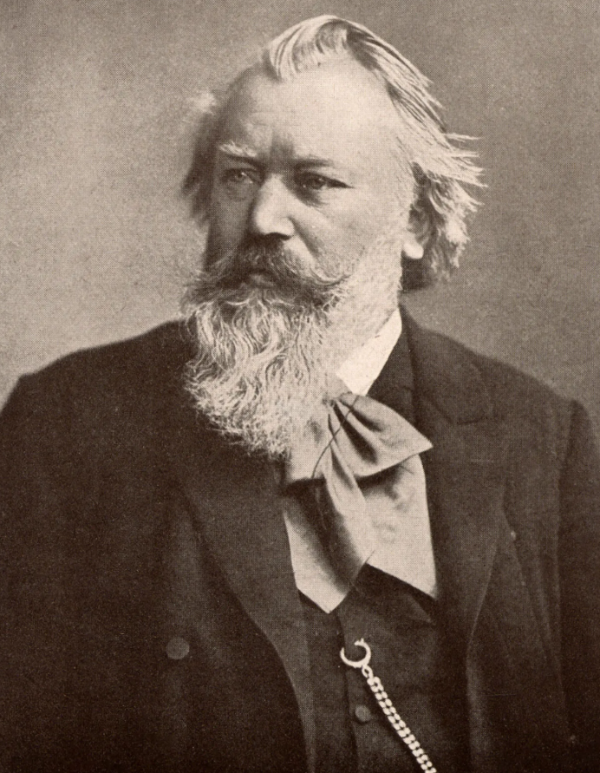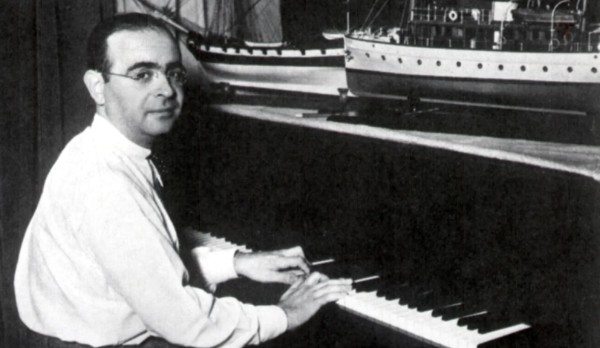It’s easy to forget that many famous composers, despite their creative and professional productivity, lived with debilitating chronic illnesses.
Sometimes these health issues sprang up after accidents, or were exacerbated by accidents.
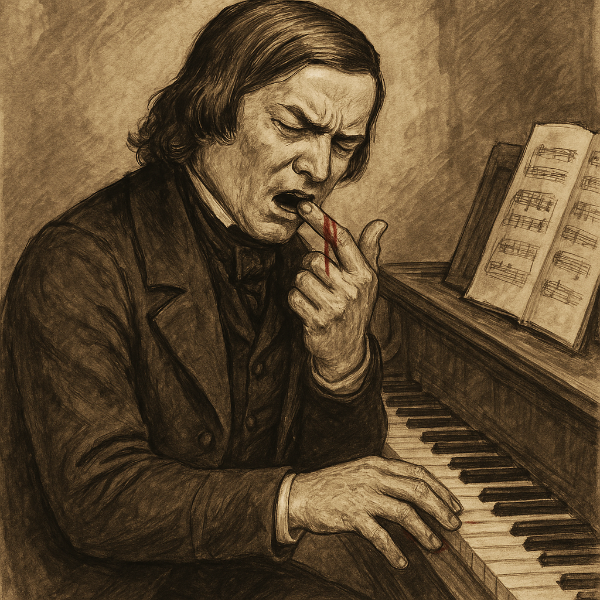
Image created by ChatGPT
Today, we’re looking at four great composers whose lives were forever changed by physically and emotionally traumatic accidents: from Robert Schumann, whose dreams of a career as a piano virtuoso were dashed by a homemade finger-stretching device. to Cole Porter, who somehow survived nearly half his body being crushed by a horse.
Robert Schumann’s Finger Injury (1832)
In 1829, nineteen-year-old Robert Schumann decided to switch from studying law to studying music.
To prove his seriousness, he moved into the household of Leipzig’s premier piano teacher, Friedrich Wieck, studying alongside Friedrich’s ten-year-old daughter Clara.
In addition to teaching piano, Friedrich also maintained a music supply store. He sold finger stretching devices in his shop, meant to encourage the independence of the fingers.
Schumann, frustrated at his slow progress compared to the prodigiously talented Clara, constructed one of his own and attempted to use it on his right hand.
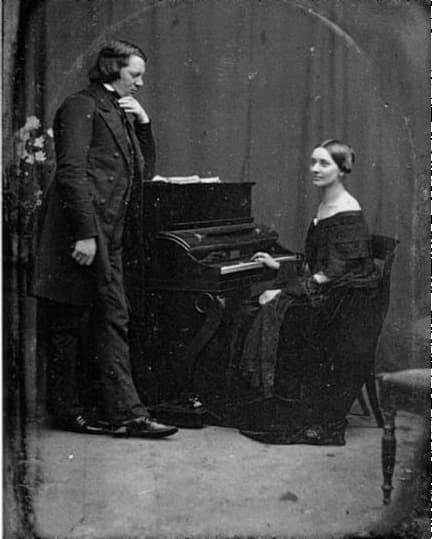
Robert and Clara Schumann
Long story short, it didn’t work. He had experienced early symptoms of the injury while still a law student, but the device, combined with the furious hours of daily practice he was doing to impress Friedrich and catch up with Clara, made matters exponentially worse.
Doctors prescribed a number of ineffective treatments, many of which sound ludicrous nowadays, including primitive electric shock therapy and even soaking the digit in ox manure.
By November of 1832, he acknowledged that the injury was likely permanent and decided to focus on music criticism and composing instead.
The injury also increased his creative reliance on Clara to be his musical interpreter. In 1838, he wrote to her:
I often bemoan my fate and demand to know why Heaven should send me this particular trial. It would mean so much here if I were able to play. What a relief to give utterance to all the music surging within me! As it is, I can barely play at all, but stumble along with my fingers all mixed up in a terrible way. It causes me great distress.
Well, I have you for my right hand.
The two married in 1840, and Clara Schumann remained the century’s premier interpreter of Robert Schumann’s work until her death a half-century later.
It’s interesting to imagine how Schumann’s music might have been different – or received differently – had he been able to pursue a career as a virtuoso pianist, too.
Schumann: Piano Concerto, in A minor, Op. 54
Giacomo Puccini’s Car Accident (1903)
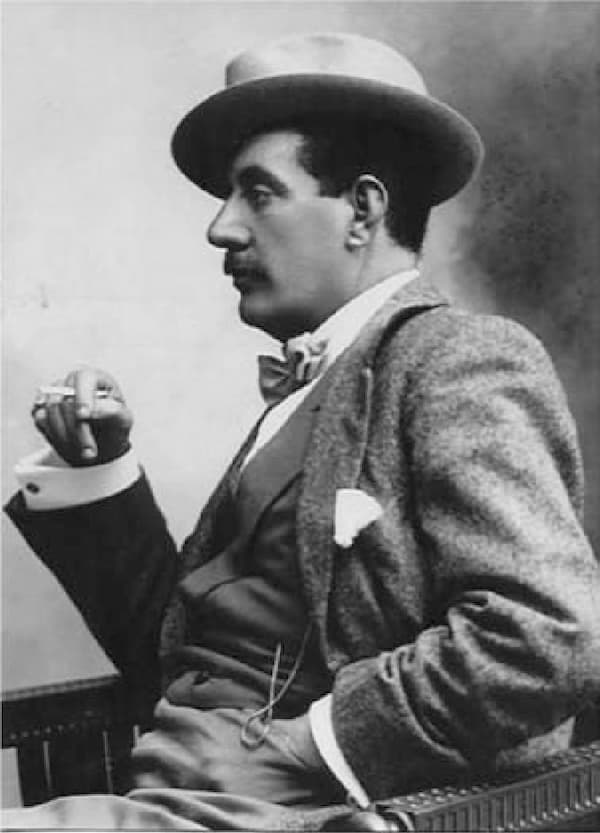
Giacomo Puccini
Opera composer Giacomo Puccini loved cars. He was one of the first few people in Italy to purchase one.
On 25 February 1903, he, his wife, his son, and his driver went to Lucca for a doctor’s appointment. On the way back home one night, the car skidded off the road and rolled over.
His wife and son were ejected from the car; miraculously, they emerged relatively unscathed.
However, Puccini’s driver suffered a femur fracture, and Puccini himself was actually nearly crushed to death. He ultimately emerged from the wreck with a fractured tibia.
Puccini was confined to a wheelchair, much to his frustration. He was in the middle of working on Madame Butterfly and was desperate to feel better.
On 13 May, doctors finally unbandaged him, but the news was bad. Puccini wrote in despair to a friend:
They unbandaged me yesterday, and progress was so insignificant that Guarneri declared I will have another three months of it, if all goes well. I can’t tell you how I feel! I was hoping to get to the piano and begin work, to set foot on the ground! Farewell to everything, farewell Butterfly, farewell my life! It’s terrible! The discouragement is really getting to me now. I’m trying to take heart, but I can’t succeed in calming myself down. Why? Who knows?
He did eventually recover, and Madame Butterfly premiered in February of 1904, just a year after the accident.
We wrote about Puccini’s love affair with cars.
Madama Butterfly – ‘Un bel dí vedremo’
Maurice Ravel’s Taxi Accident (1932)
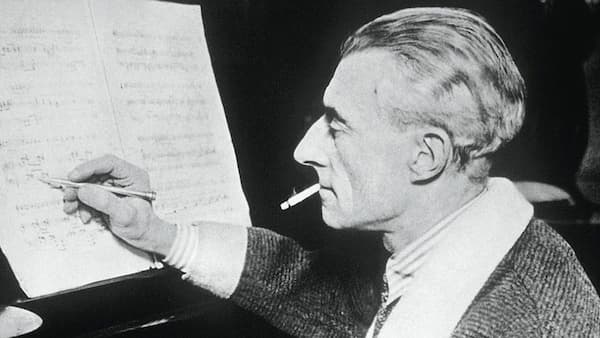
Maurice Ravel in 1928 © Fototeca Gilardi / akg-images
In October 1932, composer Maurice Ravel was hit by a taxi. The accident was severe enough to knock out some teeth and give him a mild concussion.
After receiving acupuncture and hypnosis, he appeared to make a recovery, but his friends soon noticed that troubling symptoms continued.
For one, he was spending a great deal of time on very short pieces of music. He had always been a notorious perfectionist, but his three songs that made up Don Quichotte à Dulcinée took him a full year to write.
Maurice Ravel: Don Quichotte à Dulcinée for Voice and Piano
New strange behaviors continued to emerge.
In the summer of 1933, while on vacation, he forgot how to swim and had to be rescued from the ocean.
By 1934, he couldn’t even write a sympathy card to a friend; he had forgotten what the various letters of the alphabet looked like.
The most heartbreaking incident occurred when he was invited to oversee a recording of his string quartet. He gave input to the performers and recording engineers, but, strikingly for a perfectionist, declined to listen to playbacks in between recording movements. At the end of the session, he asked a producer, “That was really very good. Remind me of the composer’s name.”
Maurice Ravel: String Quartet in F major
Ravel’s brother was forced to step in. He booked an appointment with a neurosurgeon named Clovis Vincent. Vincent suggested exploratory surgery to try to diagnose and, if possible, treat the problem.
On 20 December 1937, the surgery took place. Results proved inconclusive, and Ravel’s condition deteriorated after the surgery. After he lost the ability to swallow, the writing was on the wall.
Ravel died on 28 December 1937. Debate about the taxi accident, his diagnosis, his treatment, and his cause of death continues to this day. Many believe he may have had Pick’s disease, and that the taxi accident may have accelerated his inevitable decline from that disease. We’ll likely never know for sure.
Cole Porter’s Horseback Riding Accident (1937)
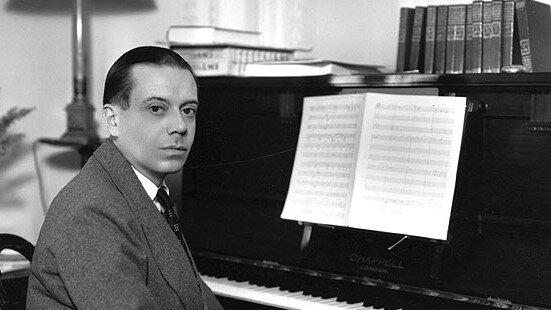
Cole Porter
In 1937, carefree forty-six-year-old American composer Cole Porter went horseback riding at a country club on Long Island.
Porter was an accomplished equestrian, but there was no way to escape injury in this particular fall. The horse fell on top of him, causing devastating injuries to his pelvis and both legs.
Doctors immediately wanted to amputate, but his wife and mother convinced them not to, for fear of what it would do to Porter’s self-esteem.
He stayed in the hospital for two years. For the rest of his life, he would remain in excruciating pain and require over thirty surgeries.
Porter recounted to a friend:
When the cast was removed, I shall never forget the first sight of my leg. I asked “What is the jelly it’s covered with?” And the reply was, “That’s not jelly, that’s blebs” — blisters. It was hard to believe for the whole leg looked like a flowing mass of lava, and it sorta made me sick…
The medications he was on caused terrifying hallucinations:
My right leg stretches, slanting upwards before me, like the side of the hill, the summit of which is my toes. From the ankle down — and approaching me — any number of small, finely sharply toothed rakes are at work.
Somehow, in the years to follow, he continued to compose. He never attained the pinnacle of success that he had pre-accident, save for one notable exception: his most popular musical of all, Kiss Me Kate, which dates from 1948. He had to be carried into the theater to attend the premiere.
His later years were filled with loss and suffering. His beloved mother died in 1952; his wife and ally Linda Porter died in 1954; and in 1958, his leg finally had to be amputated to save his life. After the amputation, he never wrote another song again.
He lived the rest of his life quietly and died of kidney failure in 1964, over thirty years after the accident.
For more of the best in classical music, sign up for our E-Newsletter

